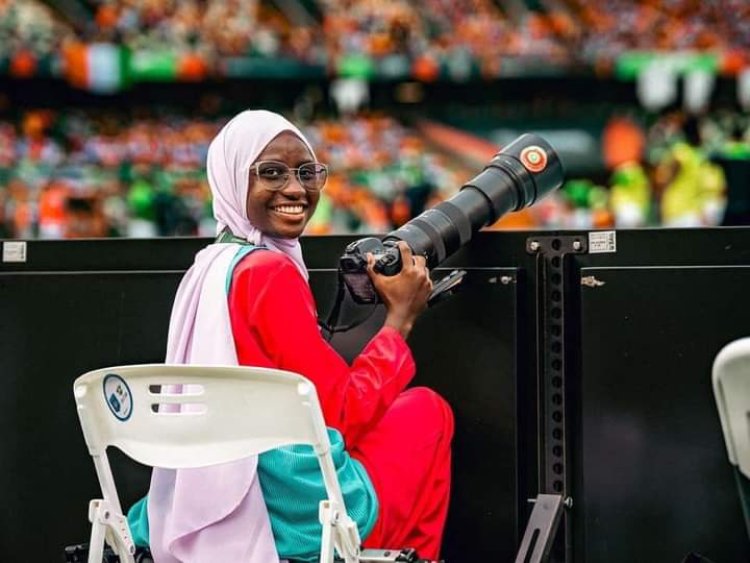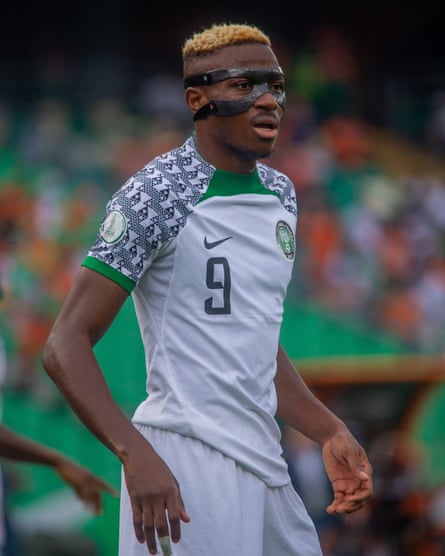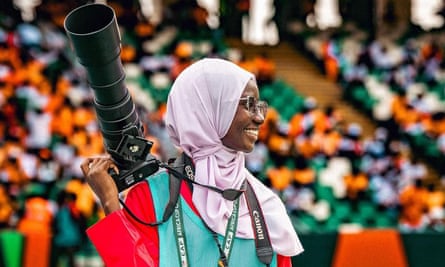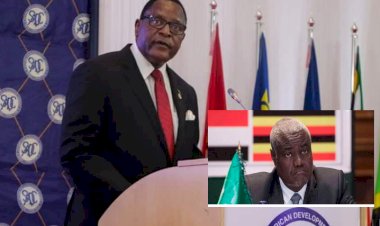She shoots … but can Gambia’s trailblazing female photographer score a place at the World Cup?
Sarjo Baldeh accompanied the Gambia national team as one of a handful of female photographers at the African Cup of Nations . Now she has her sights set on 2026

When Sarjo Baldeh was 20, she was given a Canon T6 as a birthday present. She was thrilled to have her own camera after spending her teenage years practising with borrowed equipment.
“Cameras are expensive in my country and are often imported from abroad, so you have to save for years to be able to buy your own,” says Baldeh.
Nearly three years later, she was one of the few African female photographers at the Africa Cup of Nations (Afcon) in Ivory Coast.
Baldeh accompanied the Gambia national team to the football tournament, her biggest assignment yet. At pitchside during all their matches in Yamoussoukro, the Ivory Coast capital, and Bouaké, she posted photos on her social media, often giving live updates during the games.
But Baldeh herself captured plenty of attention. In bright colours with a pale-pink headscarf, she stood out during matches.
“Some of the photos of the Scorpions [the Gambia team nickname] that you see on social media were taken by this young woman – Thumbs up to Sarjo!!,” posted African Hub on X. Africa Archives also highlighted her.
Baldeh grew up in Lamin, a village in west Gambia, with her father, a police officer, and her mother who is a firefighter. She was introduced to photography in her early teens, on a summer programme run by Starfish International, a non-profit organisation empowering girls in the Gambia. It was pure chance that she was put into the media class, she says, while her classmates learned skills such as sewing. Starfish loaned her a camera, which she used to capture daily chores.
After getting her own camera, and with encouragement from her Starfish mentor, she tried wedding photography with friends, then on paid jobs.

“I am usually online looking at the work of other photographers and checking out their social media pages. I particularly love the way sports photographers capture the movement of footballers, so I started doing research about it because there is not much information about sports photography in the Gambia,” she says.
“There is nothing like a photography school in the Gambia and I didn’t want to sit down and do nothing with my life. I wanted to make a change.”
Baldeh watched YouTube tutorials and asked established sports photographers for help.One, based in the US, whom Baldeh contacted through Instagram, taught her “how to shoot, what to shoot, how to position my light, and how to position my camera”.
Her first job on an overseas sports event was at a match between the Gambia and South Sudan during the Afcon qualification in Senegal in 2022.
In 2022, she was approached by Real de Banjul, a top-flight Gambian team, to join them on a freelance basis. The following year, Fortune FC, another Gambian team, offered her a full-time position.
But it was this month’s Afcon that has made her name. She arrived in Ivory Coast with the Gambia national team – the only female photographer in the team’s group of four. She rented a professional camera and lenses, and her travel was sponsored by Fortune FC, while the Gambia’s ministry of youth and sports covered her accommodation.
At least four other young female photographers attended Afcon, including Weam Mostafa Elsayed from Egypt, iLa Yeboah from Ghana, Justina Aniefiok from Nigeria and Khady Sy from Mauritania. Baldeh was attending the games as a freelancer – the Gambia’s national team has a male official photographer.

Baldeh had to leave Ivory Coast when the Gambian team lost the last of their group games to Cameroon.
“When Gambia went out [of the tournament], I had to leave as well,” she says. “But it was a unique experience for me, it’s a very male dominated job. My pictures went viral because I do live updating,” she says.
“When I came to Afcon I realised that in order to be in same position as male photographers I have to double up my hard work, because they’re taller than me, bigger than me, fitter than me, especially when we have to take squad pictures of the boys – it’s always a push and pull situation [to take the best spot],” she says.
“It’s not like male photographers are better than female. I want people to recognise me as a photographer who is as good as male ones. I want Gambia to see how passionate I am. I’d like to take my sports photography to the next level. I want to be part of the national team photographers.”

Baldeh says that a highlight of Afcon was getting to take pictures of Victor Osimhen, the Nigerian who was named African men’s player of the year in 2023. She had to travel for three hours from Yamoussoukro to Abidjan, where Nigeria played Ivory Coast.
“Being able to meet him in person during Afcon was amazing. Taking photos of him was a dream come true for me,” she says of her favourite player.
Baldeh’s biggest wish is to go to the 2026 World Cup in Canada, the US and Mexico.
“If I find sponsors to go, I will be the first Gambian to cover a World Cup as a sports photographer. Gambia has never qualified for a World Cup before.”


















































